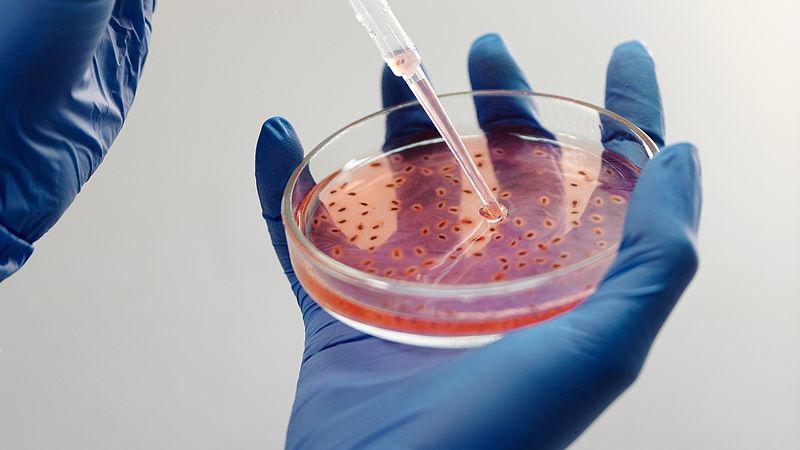MS patients have been asking for it for years: a stem cell transplant to stop their disease. Today, the Netherlands Institute of Health has proposed immediate reimbursement of stem cell therapy for a specific group from the basic package.
“This is truly a milestone,” says neurologist Joep Killestein from UMC Amsterdam, but, he adds quickly: “It concerns a small group of patients with multiple sclerosis (MS), who will be eligible for it in the Netherlands. We estimate about ten to twenty patients a year”.
Aggressively shaped group
This particularly affects patients with relapsing-remitting MS (RRMS), in which the disease is very active. “That group has a very aggressive form of MS and doesn’t respond well to existing medications,” Killestein says.
“There’s actually no alternative available for that group at the moment.” He expects this particular group to have a “good chance” of responding well to a stem cell transplant.
also look
“The Flag May Go Out”
MS president Jan van Amstel is short on superlatives. “This is great news, it’s really a breakthrough. Yes, the flag can be raised.” As part of the patient advocacy, he has been working for almost 7 years to get reimbursement for stem cell transplants in a select group of MS patients. “Originally the neurologists were not in favor, the health insurance companies were not, the health institute was not and not even the Ministry of Health. And now everyone is convinced that it is a good therapy”.
The patient association hopes that eventually more MS patients will benefit from stem cell treatment. “Hopefully the same will happen as in Sweden, where the indication has been expanded.”
Available to more people
Stem cell therapy is already being offered to MS patients in neighboring countries. We think of the United Kingdom, Belgium and the Scandinavian countries. But even in those countries, the number of patients is small, warns Killestein.
At the same time, he is currently conducting research with neurologist colleagues in Scandinavia where stem cell therapy is being compared to drugs. “This is really to see if more people should be eligible for long-term stem cell therapy. Evidence of that has yet to be produced.”
also look
Flat immune system
People shouldn’t underestimate how difficult a stem cell transplant is, says Killestein. “You give the patient a high dose of chemotherapy to flatten the bone marrow. So he is no longer able to make blood cells.”
“This has to be started again with our stem cells that have been harvested and stored beforehand.” The entire immune system is then shut down and there are all kinds of risks.
In Moscow or Mexico
In recent years, several dozen Dutch MS patients have gone abroad on their own initiative for stem cell treatment. They have often raised tens of thousands of euros through crowdfunding before departure. The destination was usually Moscow or Mexico.
Joep Killestein often looked at him with displeasure. “This is a very difficult situation. We are not responsible for what happens abroad. This is exactly why we are now so happy to be able to offer this treatment in the Netherlands. We can assess for ourselves whether someone is a good candidate and If so, we can offer the treatment.”
Watch the TV report.

